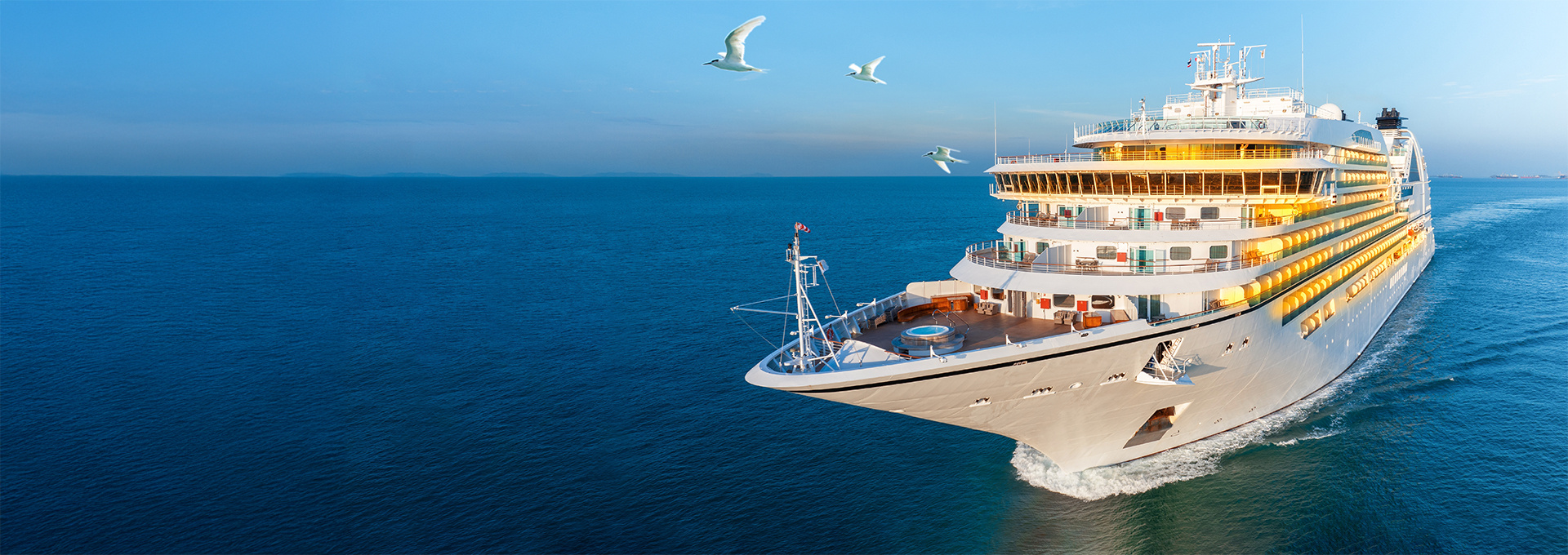ATMs in French Polynesia – Can I Use My Australian Debit & Credit Cards In French Polynesia?
Planning a dream getaway to the stunning islands of French Polynesia? With its pristine beaches, crystal-clear waters, and lush landscapes, it's easy to see why this beautiful country is right at the top of many intrepid explorers' must-visit lists. But wait; before you get too swept away by the idea of visiting this tropical paradise, let's talk about something a bit more practical - your finances.
Can you use your trusty Australian debit and credit cards at ATMs in French Polynesia? At Crown Currency Exchange, we know that no one wants to deal with money trouble on holiday, and that's why we've put together this complete guide to using ATMs in French Polynesia. Join us as we walk you through potential fees, security tips, and loads of other information that will help make your French Polynesian adventure as stress-free as possible.
Safety and Security Tips for Using ATMs in French Polynesia

We get it - you're eager to go and explore everything beautiful French Polynesia has to offer. But when it comes to using an ATM, there are some safety and security rules you need to follow to ensure your trip remains stress-free.
Choose Your ATM Wisely
When it comes to withdrawing cash in French Polynesia, location matters. Choose an ATM that is located in a well-lit, busy area such as shopping centres, banks, or hotels, as these spots are generally secluded ones with added security. This will give you peace of mind and reduce the risk of you becoming a target for theft.
Be Aware of Your Surroundings
While you may be eager to grab your cash and go exploring, take a moment to look at your surroundings before using the ATM. If something feels off, trust your instincts and find another one - it's always better to cautious, especially when you're in unfamiliar territory.
Check for Skimming Devices
Skimming devices are designed to steal your card information, so before you insert your card, take a quick look at the ATM for anything that looks unusual or tampered with. If something doesn't seem quite right, use a different ATM and make sure you report your suspicions to the ATM operator.
Cover Your PIN
Assuming you feel the ATM you've chosen is in a safe place, and nothing dodgy is happening around you, insert your card. Once prompted, enter your PIN, but make sure you use your free hand to cover the keypad when you are doing this. Be mindful of anyone standing too close as well, and don't be afraid to ask for space if you feel crowded.
Monitor Account Activity
No matter how careful you think you've been, thieves have access to technology that can still steal your card information. So, in the days following your transaction, keep a close eye on your account for any signs of unauthorised use, and if you do spot anything, report it to your bank or credit card company immediately.
Planning Tips for Your Trip to French Polynesia

Now you're aware of the ins and outs of using an Australian debit or credit card in a French Polynesian ATM. But, just like any other trip, a holiday to this amazing island nation requires some careful planning to keep things as stress-free as possible. Here are some of our top planning tips:
Check Your Entry Requirements
At present, Australian travellers do no need a visa to enter French Polynesia and you can enjoy up to 90 days in this tropical paradise without worrying about any complicated visa paperwork. However, you do need to make sure your passport has been valid for at least six months before you're planned departure date. If it isn't, get it updated as soon as possible and plan your trip accordingly.
Create a Budget
French Polynesia is undoubtedly a dream destination, but it can also be a pricey one! Accommodation, dining, and activity costs can all add up quickly, so it's wise to budget ahead. Create a daily budget taking all of these things into account, and remember, while credit cards are accepted in some places, smaller islands and local vendors will prefer you pay in cash.
Travel Insurance and Embassy Details
A good travel insurance policy is an absolute must for anyone travelling to French Polynesia. Whether you're snorkelling in the beautiful waters or hiking through the rainforest, having travel insurance provides peace of mind for any unexpected mishaps, including medical emergencies and cancelled trips.
For any emergencies your travel insurance policy doesn't cover, you should have the details of the Australian Consulate General in Noumea, which covers French Polynesia. After all, it's always better to be safe than sorry!
Learn Some Basic Phrases
While many people in French Polynesia speak some English, especially in tourist areas, learning a few basic French phrases can be incredibly helpful and endearing to the local community. Simple greetings like "Bonjour" (Hello) and "Merci" (Thank you) can go a long way in making meaningful connections and enhancing your overall travel experience.
Get Great Exchange Rates on French Pacific Francs at Crown Currency
As you make your way through the beautiful islands of French Polynesia, you'll find plenty to spend your money on. From unique souvenirs in local markets to delicious dining options. But, to save yourself some money on ATM fees, make sure you exchange your money before your trip and take it with you.
Crown Currency Exchange is the best place to do this, and you'll find great rates on AUD to CFP with no commission fees or hidden costs. Visit one of our many locations today and speak with our expert team, who will help you with your money exchange and take all of the stress out of buying French Polynesian Francs.
FAQs
Can I Withdraw Money from ATMs in French Polynesia?

The good news is that you can use your Australian debit or credit cards to withdraw cash from an ATM in French Polynesia, and the process is relatively straightforward. You'll find ATMs that accept international payment cards, most commonly in popular tourist areas, like Papeete in Tahiti and Vaitape in Bora Bora, and most of these are owned and operated by major banks, including Banque de Tahiti, Banque Socredo, and Banque de Polynesie. As long as they display symbols that are associated with global payment networks (Visa, Mastercard, Plus, and Cirrus), you should be able to use these ATMs with no issues.
Now, while the main islands are well-served, it's worth noting that more remote islands might not have as many ATMs. With this is mind, it's a good idea to exchange your money before your trip and taking cash with you.
Another good reason for doing this, whether you're visiting tourist hotspot or a remote location, is because while you may think withdrawing cash is the most convenient way of accessing your money, the fees can soon add up. We'll be looking at this in more detail a little further down the page, but both your bank and the ATM you use will likely impose a fee for cash withdrawal, potentially costing you a lot of money in the process.
Differences Between French Polynesian and Australian ATMs

As you might expect, there are some differences between French Polynesian and Australian ATMs, and knowing how what these are (and how to navigate them) is super important if you find yourself in a situation where you need to withdraw cash.
First off, French Polynesian ATMs can be quite scarce, especially if you're island-hopping beyond the main tourist hubs like Tahiti and Bora Bora. This means you may find yourself spending a fair amount of time hunting one down compared to the convenience you're used to back home in Australia.
When it comes to transaction fees, be prepared for some differences as well. Australian banks are likely to charge for international withdrawals, and local ATMs in French Polynesia may also have their own fees. With this in mind, it's a good idea to check with your bank before you travel so you're not caught off guard by extra charges.
Language is another important thing to consider when using a French Polynesian ATM. French is the official language of French Polynesia, and this means many ATMs will default to French. Don't panic if you're not fluent, though, as most ATMs offer an English language option. Just look for a flag representing an English-speaking country or choose the option that says "Anglais" - this means "English" in French.
What Are the ATM Fees and Charges in French Polynesia?

When using your Australian debit card or credit card at ATMs in French Polynesia, you'll encounter a couple of different fees, and knowing what these are will ultimately help you figure out how much you'll actually be spending when you withdraw cash.
Firstly, your bank or credit card company is very likely to charge you a fee for international cash withdrawals. This is usually set as a percentage, and this varies between each financial institution, but can be as high as 5% of the transaction amount.
You may also be charged a transaction fee by the ATM operator, and these fees will also vary, depending on who owns the ATM. ATMs owned by banks tend to charge much smaller fees that independently-owned ATMs, which can charge up to ₣275 CFP Francs ($3.75 AUD).
Taking these fees into account, let's provide a real world example of how much it could cost you to withdraw cash using a French Polynesian ATM.
Let's say that you want to withdraw ₣14,500 CFP Francs ($200 AUD). With your bank's potential 5% fee and the ATM's fee, you could end up paying fees of around ₣1,000 CFP Francs ($13.75 AUD). When you think about these fees adding up over the course of your holiday, you're potentially spending quite a lot just to access your funds.
Top Tip: The best way to avoid fees altogether is to exchange money before your trip to French Polynesia and take cash with you.
What Should You Do if Your Card is Lost or Stolen in French Polynesia?
While nobody likes the idea of losing their debit or credit cards while in French Polynesia (or, worse, having them stolen), life is unpredictable and knowing what to do in this instance is super important.
First, stay calm and contact your bank's customer service immediately to report the loss or theft. They'll be able to block your card to prevent any unauthorised transactions and issue a new card to your registered address.
In the case of a stolen card, you'll likely be asked to report the theft to the local police and complete a police report. You'll then need to provide this to your bank or credit card company in order for them to reimburse any stolen money.
Should You Take Cash to French Polynesia?

Yes, you should definitely take cash to French Polynesia! While the major islands like Tahiti and Bora Bora are well-equipped with ATMs and card machines, things can get a bit tricky on the smaller, more remote islands. For instance, power outages are not uncommon, and when the electricity is down, so are the ATMs and card machines. As such, having cash on hand is the only way of paying for goods and services when technology breaks!
Also, carrying cash can save you from potential card fees and the hassle of having to find a working ATM. Local markets, eateries, and markets tend to prefer cash payments, too, and having cash means you'll be able to enjoy everything French Polynesia has to offer.



.png)

